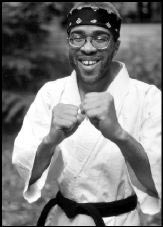AS A YOUNGSTER, I read comic books voraciously. And although I dismissed the advertisements hawking X-ray glasses and sea monkeys as an unnecessary interruption to the adventures at hand, there was one ad I still remember as fondly as the bulge in Aquaman’s tights.
“Songwriters Needed!” it proclaimed in crude type. “Your Poetry Set to Music!” “Earn Money Now!” The addresses were always in faraway metropolises: Hollywood, Nashville, New York City. Hotbeds of the entertainment industry, teeming with lavish recording studios, where big stars, like Donnie and Marie, waited impatiently for their next hit to drop through the mail slot.
I never answered the call of those ads, but I always wondered what happened to the brave souls who did, the dreamers who submitted their literary musings for “professional appraisal” via those distant P.O. boxes. So did Jamie Meltzer. And in his documentary Off the Charts: The Song Poem Story, the filmmaker shares what he found in this “shadowy realm of the music industry that produces songs for amateur poets—for a fee.”
There are no luminaries of Osmond caliber in Off the Charts, part of the new PBS series Independent Lens. The biggest name here is N.R.B.Q. drummer Tom Ardolino, a fervid collector of the 45s and LP’s pressed of these songs and sold back to the lyricists. Nevertheless, the hour is filled with memorable characters. Take Gene Marshall, “the king of the demo singers.” Rattling off his r鳵m鬠which includes gigs with Elvis and Sinatra, this Robert Goulet soundalike comes off like the real-life incarnation of Eugene Levy’s old SCTV character Bobby Bittman. Nevertheless, he takes his job seriously, assuring viewers that in this business, “the lyric is sacred.”
Marshall boasts of once recording 82 songs in one four-hour session, and time is definitely money in this field. Art Kaufman, proprietor of Magic Key Productions, requires only 49 minutes to transform “The Thing,” a submission about an extraterrestrial that compels its victims to boogie, into a polished recording. The world of the song poem even has its own tragic genius, Rodney Keith Eskelin, a.k.a. Rodd Keith, a singer, multi-instrumentalist, and producer who denigrated his work as “prostitution,” wrestled with drugs, and eventually jumped from a freeway overpass to his death.
But the real stars of Off the Charts are the customers. Folks like Caglar Singletary of Elmira, N.Y., a young African-American man who channels his hobbies—”martial arts, ladies, and religion . . . and science fiction”—into songs like “Nonviolent Taekwando Troopers.” Iowa song poet Gary Forney rings up a Danish radio DJ from a roadside phone booth to see how his new CD is being received by listeners and is fazed by neither a noisy passing tractor nor the indifference with which his trans- Atlantic call is received. The sincerity of these amateurs is the most touching aspect of Off the Charts. Only one interviewee admits to submitting an intentionally bad lyric, and even his efforts are rewarded (for a fee, naturally), in the form of the country tune “Blind Man’s Penis.”
There’s just one thing wrong with Off the Charts: Seattle won’t get to see it. According to a viewer services representative from our local PBS affiliate, KCTS, “Off the Charts is not scheduled to air anytime in the near future.” Viewers in Spokane, Pullman, and Portland can tune in at 10 p.m. on Tuesdays and enjoy it and subsequent episodes of Independent Lens, but the geniuses at Channel 9 have dedicated this prime-time slot to—brace yourself—a reality show in which eight civilians re-create the conditions endured by 19th-century fur traders in Canada. I repeat, 19th-century fur traders. The mind reels.
The good news is, while Seattle waits for KCTS to start broadcasting nighttime programs of interest to viewers born after the Great Depression, we can still check out The American Song-Poem Anthology: Do You Know the Difference Between Big Wood and Brush (on Bar/None Records). This 29-track CD compiles such notable compositions as “I’m Just the Other Woman,” an unsettling exercise in free jazz, sung in a voice of indeterminate gender; Rodd Keith’s acid-drenched Beach Boys pastiche, “From Ecstasy to Frenzy”; and the funky “Jimmy Carter Says Yes,” an off-kilter but soulful ode to America’s 39th president.
As Rodd Keith’s son, collector Ellery Eskelin, admits, most song poems are forgettable. But the selections collected on The American Song-Poem Anthology definitely rank in “the 10 or 20 percent that are just from another planet.” And the best part? If this charming oddity takes off, ࠬa Bar/None’s repackaging of The Langley Schools Music Project, the lyricists might finally start receiving those royalty checks the enticing ads in my comics promised. Hell, Yo La Tengo already cover one famous song poem. And if Donnie and Marie don’t want to finish up their days shilling Pepsi products, they’d be wise to follow suit.







